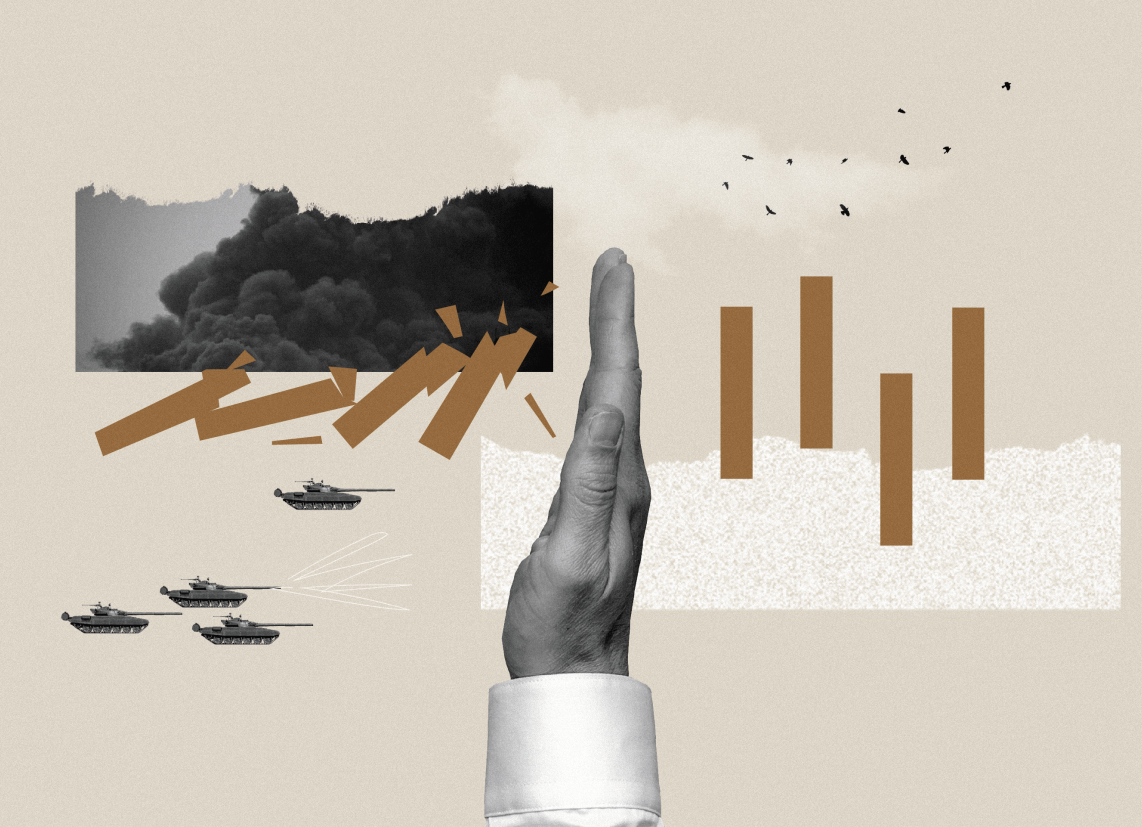Brands Stand with Ukraine

As Russia continues its increasingly brutal military campaign in Ukraine, brands are taking a stand, refusing to do business with the world’s largest country to help put an end to these tragic events. This isn’t the first time that companies have shown indignation and boycotted stakeholders to stop injustice. For example, in 1990, hundreds of US companies halted relations with South Africa to help dismantle apartheid—a decision which Bishop Desmond Tutu later said “was essential to reach the larger public that systemic change was vital or there would be no future,” according to Fortune. And so, the business world’s symbolic gestures can hold weight.
Among the most significant companies to exit Russian markets is the jean giant Levi Strauss & Company. In 1873, Levi Strauss and Jacob Davis patented an early version of blue jeans, setting off a remarkable American success story. In 2020, the company brought in $4.5 billion in net revenue. In addition to its impressive sales, Levi’s played an important role in Cold War politics as an item from the West that was popular in the Eastern Bloc’s black market. But currently, the war in Ukraine has soured the company’s relationship with Russia. Levi’s recent news release said that “LS&Co. is temporarily suspending commercial operations in Russia, including any new investments" because of the chaos surrounding Russia’s military action. NPR reports that “Levi's and the Levi Strauss Foundation are donating more than $300,000 to nonprofit organizations helping Ukrainians displaced by Russia's invasion.” These recent steps cohere with the company’s stated principles; “values – empathy, originality, integrity, and courage – guide every decision [they] make and every action [they] take.”
Another blow to the Russian economy is McDonald’s decision to suspend its operations. Founded in 1954, McDonald’s came onto the scene in the Soviet Union in the early nineties, right as President Mikhail Gorbachev was liberalizing the country. It was a quick hit with the Soviets who were craving American-style food. According to CNN, McDonald’s CEO Chris Kempczinski now says that "our values mean we cannot ignore the needless human suffering unfolding in Ukraine” and that "McDonald's has decided to temporarily close all our restaurants in Russia and pause all operations in the market." One McDonald’s fan did not take the announcement lightly. On March 13th, The Times Hub reported that “famous Russian pianist Luka Safronov, son of artist Nikas Safronov, has handcuffed himself to the entrance of McDonald's on Pushkinskaya Square in Moscow.” He did this to protest McDonald’s departure, but the police eventually detained him. Despite Safronov’s demonstration, McDonald’s has not wavered from its plan to exit Russia. It was also resolved to leave because Putin’s military actions have impacted regional supply lines, making McDonald’s operations in the country untenable.
Coca-Cola, Hermes, Chanel, and Prada are among the many other household names boycotting Russia. According to yahoo!entertainment, “Caterpillar, the US-based engineering giant, has also announced that it is leaving Russia as operations in the country ‘have become increasingly challenging, including chain disruptions and sanctions.’”
But certain humanitarian concerns have complicated the business world’s ability to shun Russia. Pharmaceutical companies such as Abbott Laboratories and Johnson & Johnson are still providing medications to the country as of March 23. According to healthleaders, “the reason is twofold: Russians need access to medicines and medical equipment and international humanitarian law requires such companies to keep their supply chains open.” It remains to be seen whether other companies’ boycotts will have an influence on the trajectory of Russia’s invasion of Ukraine.
